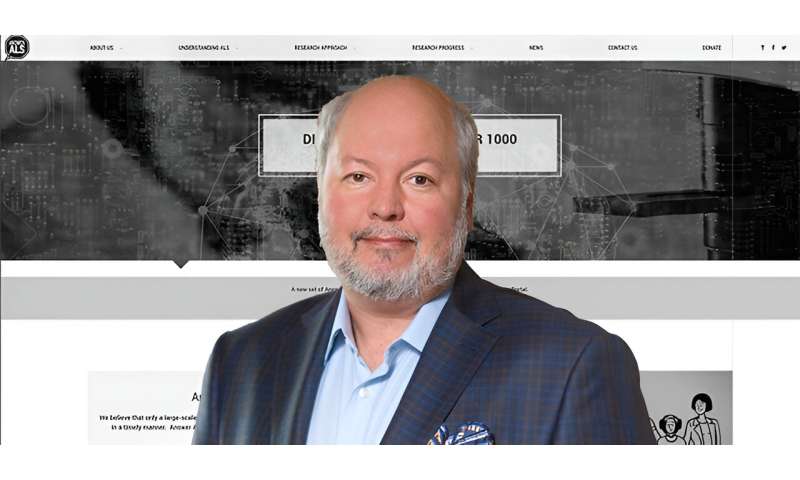Pennington Biomedical's Dr. Jeffery Keller to lead Answer ALS' open access data repository

Pennington Biomedical's Dr. Jeffery Keller has been named Principal Investigator to oversee Answer ALS' open access data repository, Neuromine. Serving as Director for Pennington Biomedical's Institute for Dementia Research and Prevention and a Professor of Aging and Neurodegeneration, Dr. Keller will help lead the growth of access to Answer ALS data repository, the largest and most comprehensive ALS data resource in history.
"I'm honored to join the effort and momentum Answer ALS has created," said Dr. Keller. "With over 300 new, independent research projects started as a result of open access to this tremendous rich data set, I'm looking forward to building on that momentum through rapidly advancing AI and organoid capabilities.
Dr. Keller joins Dr. Terri Thompson, Ph.D., Answer ALS's Director of Data Management and who previously led NASA's open-source database, in the oversight of the Neuromine Data Portal. In his role as Principal Investigator, Dr. Keller is assuming that role from Dr. Jeffrey Rothstein, MD, Ph.D., Director of both the Robert Packard Center for ALS Research and the Brain Science Institute at Johns Hopkins. Dr. Rothstein helped found Answer ALS research and he continues to play a pivotal role in its progress, along with the entire consortium of ALS researchers around the country.
Answer ALS was founded in 2014, resulting from a summit lead by Team Gleason when Steve Gleason challenged the research community to develop a business plan to bring an end to ALS. Comprised of eight ALS clinics, dozens of institutions, tech industry leaders, and with the participation of more than 1000 people living with ALS, Answer ALS created the most comprehensive and open access data repository, freely available and featuring associated biological samples.
"Consensus is growing that a major breakthrough in ALS will involve big data, human based samples and the application of machine learning and AI, said Ed Rapp, Answer ALS Advisory Board Chair, former Global President of Caterpillar, and a person living with ALS. "I believe Dr. Keller's unique experience and perspective will not only help further our role in those areas, but also foster growth in how others access the tools we make publicly available."
Dr. Keller earned his Ph.D. from the University of Kentucky in Molecular and Cellular Biology. At Pennington Biomedical, Dr. Keller has developed high performance drug screening models and basic science approaches, and he has conducted over three dozen clinical trials focused on neurodegenerative disease.
"Answer ALS' innovative quest for a such a large-scale coordinated effort to understanding and ultimately defeating ALS is a landmark project in collaboration and the sharing of data," said Dr. John Kirwan, Executive Director of Pennington Biomedical. "For such a prominent organization to seek partnership with one of our researchers is a testament to the talent, skill and research acumen of Pennington Biomedical's investigators. We congratulate Dr. Keller on this appointment and for being a bridge for our campus and Answer ALS."
About the Pennington Biomedical Research Center
The Pennington Biomedical Research Center is at the forefront of medical discovery as it relates to understanding the triggers of obesity, diabetes, cardiovascular disease, cancer and dementia. Pennington Biomedical has the vision to lead the world in promoting metabolic health and eliminating metabolic disease through scientific discoveries that create solutions from cells to society. The Center conducts basic, clinical, and population research, and is affiliated with LSU.
The research enterprise at Pennington Biomedical includes over 480 employees within a network of 40 clinics and research laboratories, and 13 highly specialized core service facilities. Its scientists and physician/scientists are supported by research trainees, lab technicians, nurses, dietitians, and other support personnel. Pennington Biomedical a state-of-the-art research facility on a 222-acre campus in Baton Rouge.
For more information, see www.pbrc.edu.
Provided by Louisiana State University